There’s no denying that Doug Wilson has made numerous mistakes as general manager of the San Jose Sharks. The majority of his faults can be related to a behavioral economics fallacy: default bias.
Essentially, Wilson would rather default to his ordinary roster and keep his players’ long-term rather than incur the risk of change and possibly better-valued moves. This bias is easily seen in his retention of Marc-Edouard Vlasic, Brent Burns, Logan Couture, and notably Erik Karlsson. His over-spending on these veterans are the main reasons for Sharks’ plummet to the bottom of the standings the last two seasons.
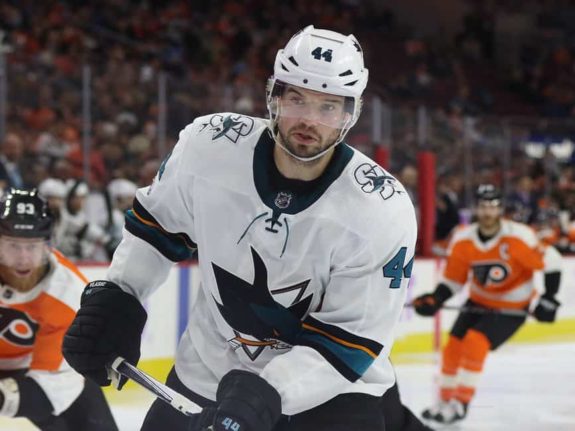
However, it was not always that way. Wilson began his tenure as Sharks’ GM in 2003 with a Conference Final loss and has succeeded greatly in his almost two decades in charge of the club. Lockouts prevented his team twice from qualifying for the postseason, and poor regular seasons have denied his club three times. Those times have been fairly recent, lacking playoff berths in 2014-15, 2019-20, and 2020-21.
And, with long-termed contracts making the outlook on San Jose even worse, many would see Wilson in the hot seat. Hasso Plattner, the Sharks’ typically hands-off majority owner, backed Wilson in January of 2020, but how much longer can he support the executive if the team continues struggling?
What is San Jose’s Long-Term Plan
Wilson and the organization’s president, Jonathon Becher, have outright indicated they do not plan on a full-length rebuild, citing a continued lack of ticket sales as the rationale. However, Plattner’s $9.2 billion current net worth leads one to believe the owner may not entirely care about club revenue in the present.
Typically dominant teams take a while to develop. Recent champions such as the Tampa Bay Lightning, Pittsburgh Penguins, Washington Capitals, and Chicago Blackhawks are prime examples that quality teams require two or three high draft picks and constant positive value draft selections, trades, and signings.
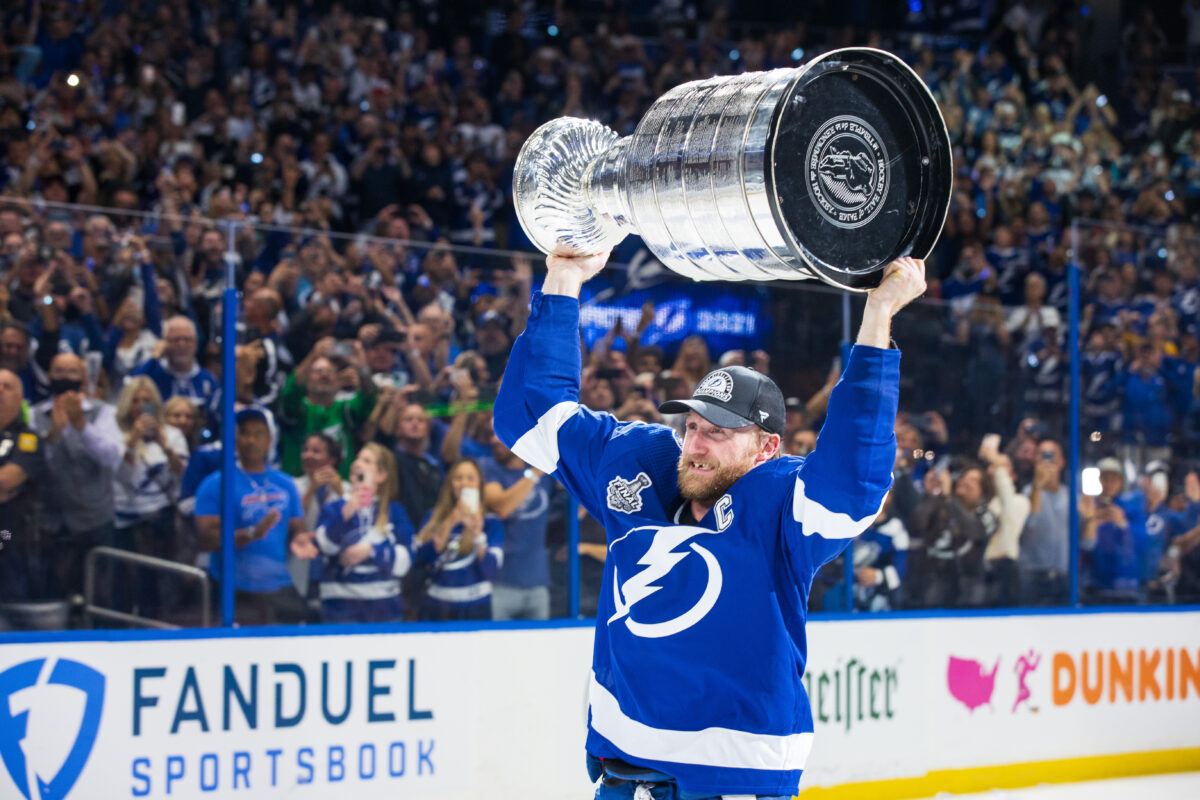
The Sharks hold the seventh overall pick in a mediocre 2021 draft class that lies between dominant classes in 2020 and 2022. The Sharks dealt their high 2020 draft pick due to re-signing Karlsson, so the Sharks are likely two more high picks from building toward contention through the draft.
If the Sharks want to build through acquiring talent in free agency, they lack funds. Using CapFriendly and roughly estimating Balcers’ and other San Jose free agent’s salaries, they have $8 million in cap space to add talent and could have near $12 million with a Martin Jones buyout. Given the team’s lacking center depth, aging and shaky defense, and rough goaltending, San Jose would need more space to greatly improve.
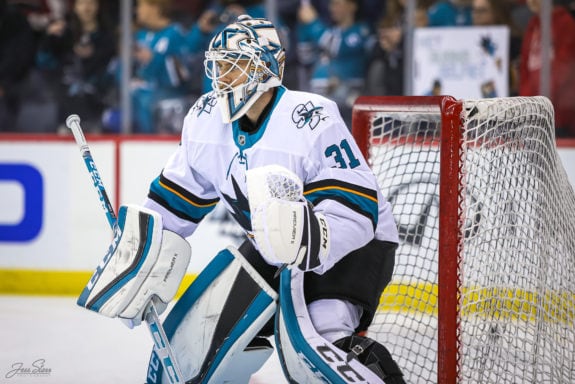
And, San Jose lacks a deep prospect pool, making it unlikely the team would move notable picks or prospects for talent. So, the Sharks are in for a long-term build toward being an elite roster again.
Do the Sharks Need to Be Elite?
Obviously, the Sharks want to field the best roster possible and contend for the Stanley Cup every year. But could Wilson remain GM even if the Sharks are not a great team?
The way I see it, Wilson needs to signal over the next season that his lengthy contracts could be moved or age better than they appear now. Because, as I said, it’s hard to discount 17 years of success from Wilson for the two years of rough performance. But if it appears that the Sharks are ruined for the next five years due to his moves, a firing could be contemplated.
If the Sharks are in a playoff race for the majority of next season, it would signal that the Sharks can return to being a postseason club in a short time.
Wilson Could Be Secure
The comment section may groan at this notion, but I think there are a few reasons Wilson may be pretty secure in his job for the next few seasons. The most obvious, as I’ve already mentioned, is that the GM has led this club to the playoffs with unprecedented consistency, and it’s hard to disregard that for a few seasons of poor finishes.
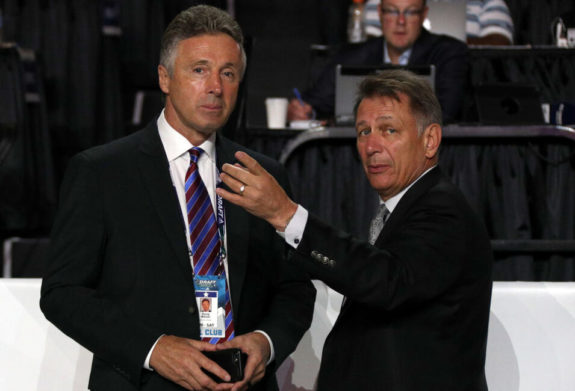
Second, San Jose would not be a popular market for potential GMs. It is easy to point out Wilson’s lengthy contracts and call for his firing, but why would a quality future executive want to join the Sharks if they have little financial stability and freedom.
I would argue that quality candidates would not want to take over the team if the Karlsson, Vlasic, and Couture contracts looked at their worst. If a future GM was too restricted by the former’s decisions combined with the flat salary cap and could not build their team how they wanted, it’s hard to say they would want a job in San Jose.
Also, Plattner and ownership are much more familiar with Wilson than hiring someone outside the organization. The Sharks know what they have in Wilson: a veteran executive with a long resume, who usually receives positive value in trades that needs to temper his desire to extend his players long-term when their primes are ending.
My Best Case Scenario
I think the best-case scenario for the Sharks would be a rebuild led by Wilson. Wilson has proven his ability to be a quality general manager through so many years of success, and if one of his teams was able to win the Stanley Cup, the pain of going into a rebuild would not be as harsh.
However, I think that it’s unlikely Wilson would be given a long enough leash to go into a rebuild. I believe that he needs to prove ownership over the next two seasons that his long-term contracts could age better than they appear now.
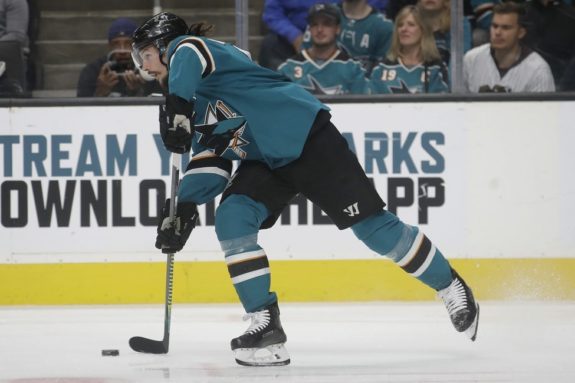
Luckily for Wilson, if he can remain in his job for the next couple of seasons, his roster will begin improving from Bordeleau, Ryan Merkley, and other youngsters aiding the team on rookie contracts.
What do you think of Wilson’s future with the Sharks? Let me know in the comment section below!